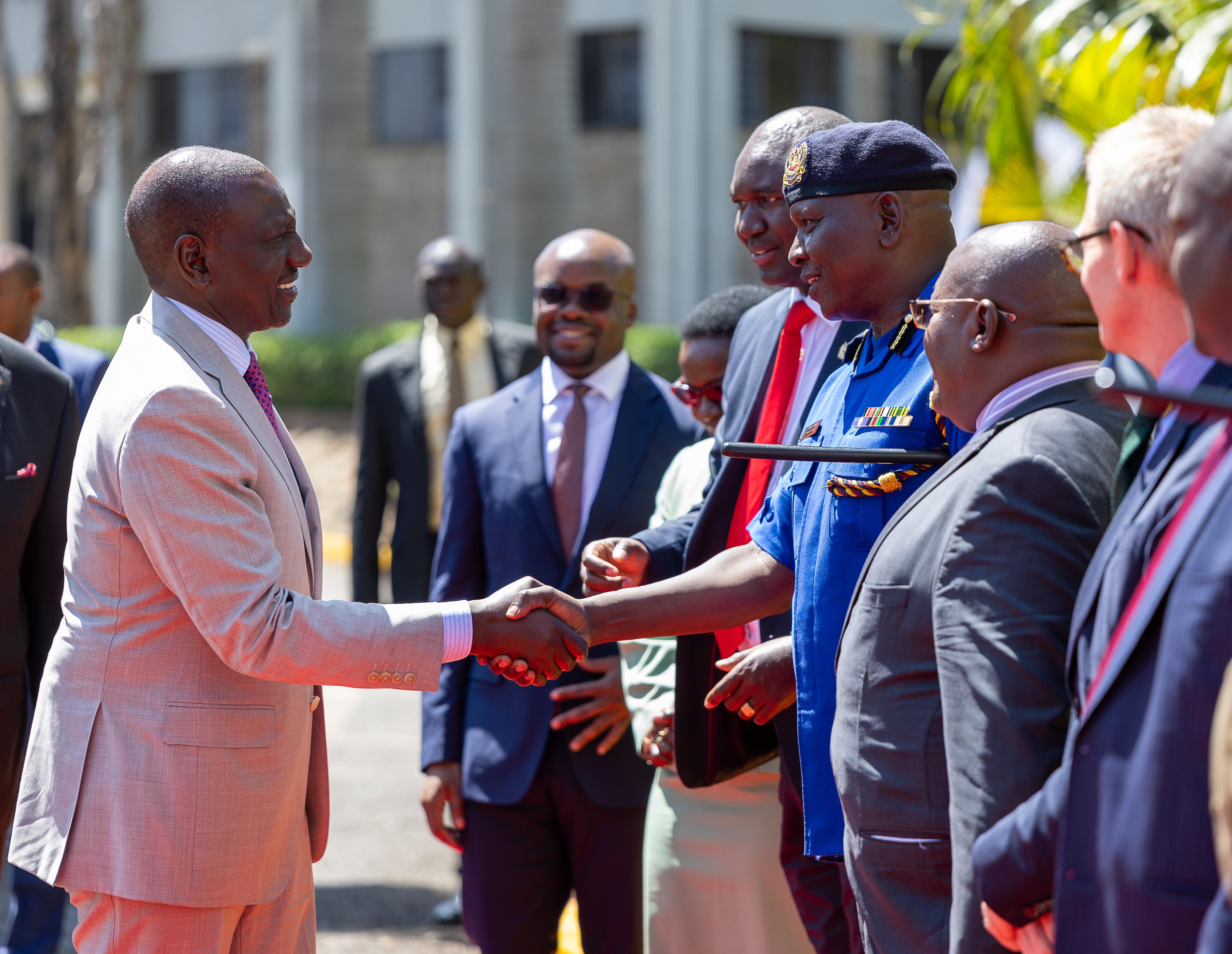
 President William Ruto shakes hand with IG Douglas Kanja as other leaders look at KSG on December 13, 2024/PCS
President William Ruto shakes hand with IG Douglas Kanja as other leaders look at KSG on December 13, 2024/PCS
Without revealing more details, Ruto stated that the process did not go smoothly as expected, assuring that plans to resolve it are underway.
He confirmed that the first batch of 1, 000 vehicles will be commissioned early in 2025.
“The procurement did not go very well; we are repeating it, by early next year we will deliver the first 1, 000 vehicles...we intend to deliver 3, 000 so that our policemen and women can discharge their responsibilities as is appropriate,” he said.
He admitted that many stations across the country do not adequate transport something that has become a great challenge to officers in performing their duties effectively.
In August this year, Ruto announced that the government had finalised the acquistion of 1,000 electric vehicles for the police officers and National Government Administration Officers.
Speaking during the launch of National Police Service and State Department of Correctional Service strategic plans (2023-2027), Ruto gave an undertaking to ensure the police modernisation is completed by 2027.
“I intend to see to it completed in two years...so that we can have the equipment necessary, vehicle necessary and ammunition necessary to protect our country,” he stated.
Commending the officers for their service to the nation, Ruto expressed his commitment to ensuring they are well-kitted, noting this will be rolled out soon.
On housing, Ruto said the initial 582 housing units have been completed, with 1, 000 currently under construction.
Some 17, 000 additional houses, he said, are under procurement stage.
Inspector General of Police Douglas Kanja said the strategic plan embraces the spirit of Article 244 of the constitution, which establishes the police as a professional, disciplined, transparent, and accountable service.
According to Kanja, they have embarked on a transformative journey to turn police stations into centers of excellence for police operations and service delivery to the public.
“To achieve this, we have set priority on training, mental health, and fighting corruption within the service,” he said.
He noted that they are currently undertaking training officers from the stations, subcounties, and police commanders to standardise their capacity in operational, command, and police administration.
“In the spirit of community policing, he said they have laid out an elaborate strategy for collaboration with communities and development partners,” he added.
The IG added that they have entered a partnership with Kenya School of Government and Huduma Centers to develop programmes in customers service for training of officers to improve service delivery to the public and build the much-needed trust and confidence between the public and police.











